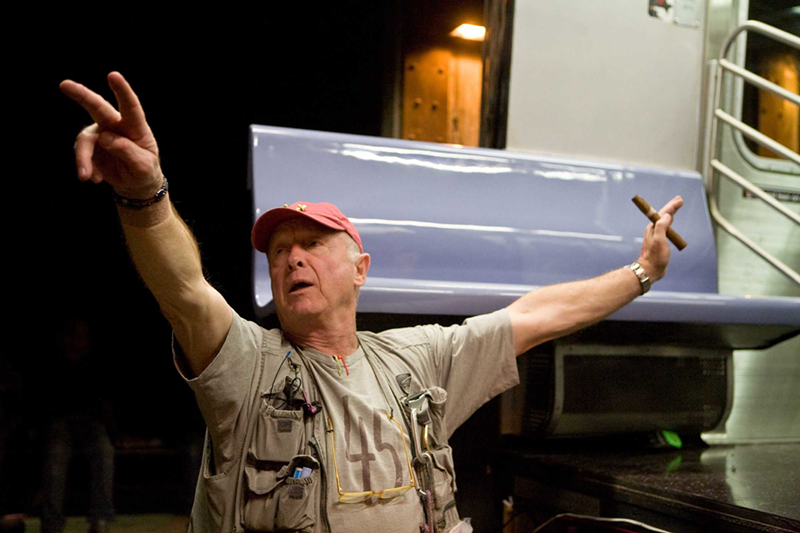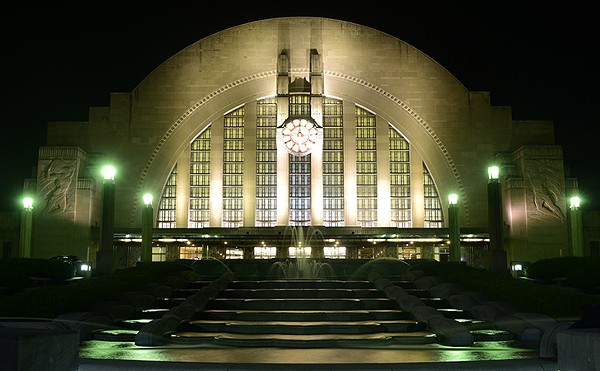
During this year’s Fourth of July opening week notices, in providing a summary for Oliver Stone’s Savages, I wrote that Stone sought “to show that he’s still got a little life left, but from the trailers, it (Savages) looks more like another violent Tony Scott (in the Man on Fire mode) oversaturated actioner.” Rarely do I ever feel the need to go back and clarify a point in a capsule, but on this sad occasion, I simply must.
Tony Scott trafficked in action — whether gunplay, fast cars or even super-charged battles of will between characters, usually men, where words were merely slapped retorts sparking the physical confrontations — but unlike the action junkies chopping up the battles to pile on more frames helter-skelter, Scott would actually slow the moments down, to let us see the beauty of stillness before the clash. He gave us a chance to breathe and steady ourselves.
The news of the apparent suicide of Tony Scott is frankly confounding. Often, with directors, we watch their films and imagine that their lead characters are serving as onscreen avatars for the men behind the camera, and in Scott’s case we could be forgiven for assuming that the younger brother of director Ridley Scott might have been a wildly heroic figure, a modern myth from Hollywood’s Olympic heights.
Think of Top Gun’s daring Maverick (Tom Cruise) or Axel Foley righting the wrongs in Beverly Hills Cop 2, or how about just being associated with a title like The Last Boy Scout (which featured Bruce Willis and Damon Wayans) or Enemy of the State (starring Will Smith and Gene Hackman). Over the course of his career he developed lasting connections with several actors. He did a pair of films with Tom Cruise (1990’s Days of Thunder followed Top Gun); and beginning with Crimson Tide in 1995, he teamed up with Denzel Washington five times (Man on Fire, Déjà Vu, The Taking of Pelham 123 and Unstoppable, his final completed feature). He enlisted Quentin Tarantino’s pen for a couple of projects — the full script for True Romance and, as legend states, punchy dialogue riffs throughout Crimson Tide. Of course there was also the amped-up story of the life of actor Laurence Harvey’s daughter, Domino, the one-time fashion model turned bounty hunter.
What stands out about that incomplete list of his directing filmography is that Scott’s protagonists were compellingly diverse, crossing and blurring lines of gender and class and race, sometimes with one foot on the side of the angels while also knee-deep in sin and squalor on the other. That’s not to assume that this driven Brit knew or related to the darkness over the light (or vice versa), but he certainly had a strong appreciation for the complexities of moral situations.
But he wasn’t just a director. His credits on the Internet Movie Database reveal that his production output for both film and television outpaced his directing more than two-to-one. Beyond the films he helmed, he helped to oversee films like In Her Shoes, The Assassination of Jesse James by the Coward Robert Ford, Cyrus, The Grey and, most recently, his brother Ridley’s summer feature Prometheus and the television projects The Company, The Andromeda Strain, Numb3rs and The Good Wife.
With such varied tastes, it might be easy to conflate his importance in the industry, especially now as we look back in mourning, seeking to honor and praise the man as we cast his legacy in stone. But I don’t believe that is how Scott would want to be remembered.
It again comes back to the characters in his work and what will likely be the one I recall most fondly — Creasy (Denzel Washington) from Man on Fire. The film itself captures Scott at a stylistic highpoint, where his use of the over-exposed film stocks and fractured editing (which was never as seizure-inducing as many of his peers at the time) and roving subtitles that focused our collective attention, made us think about the words, the dialogue in the frame, because they were sometimes coming at us like bullets to the brain. He would continue to develop these techniques, but here, he was on fire.
I would like to believe that he was Creasy. Scott was a proficient shooter, a gun-for-hire, whether for film, television or commercials, with his eye ever on the prize and we, the audience, were the charges he had sworn an oath to entertain and protect, which he did down to the last frame.
CONTACT TT STERN-ENZI: [email protected]





